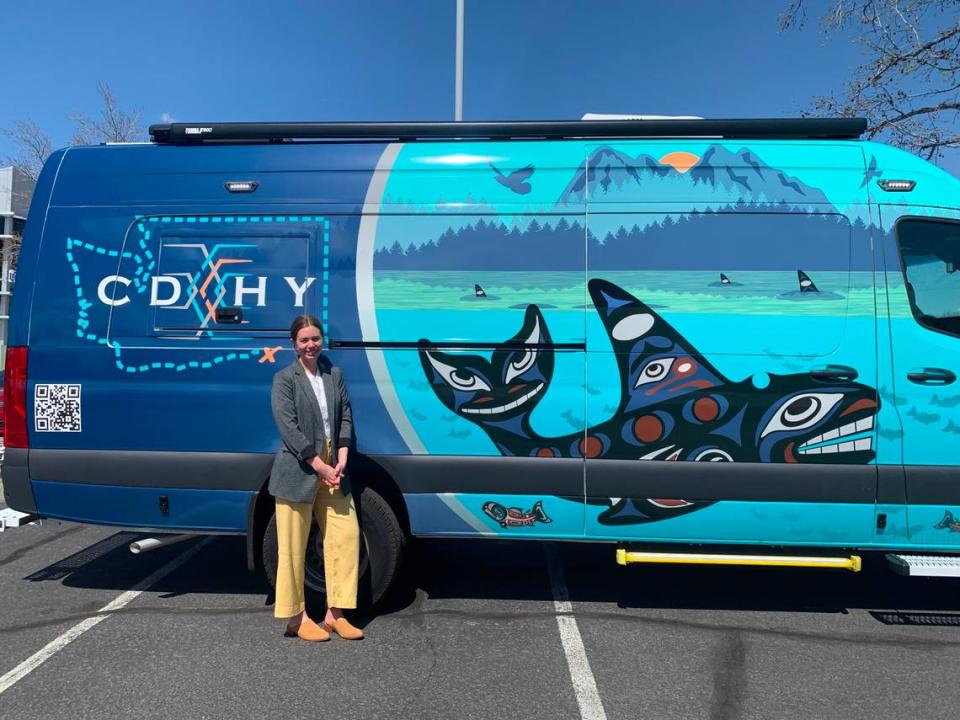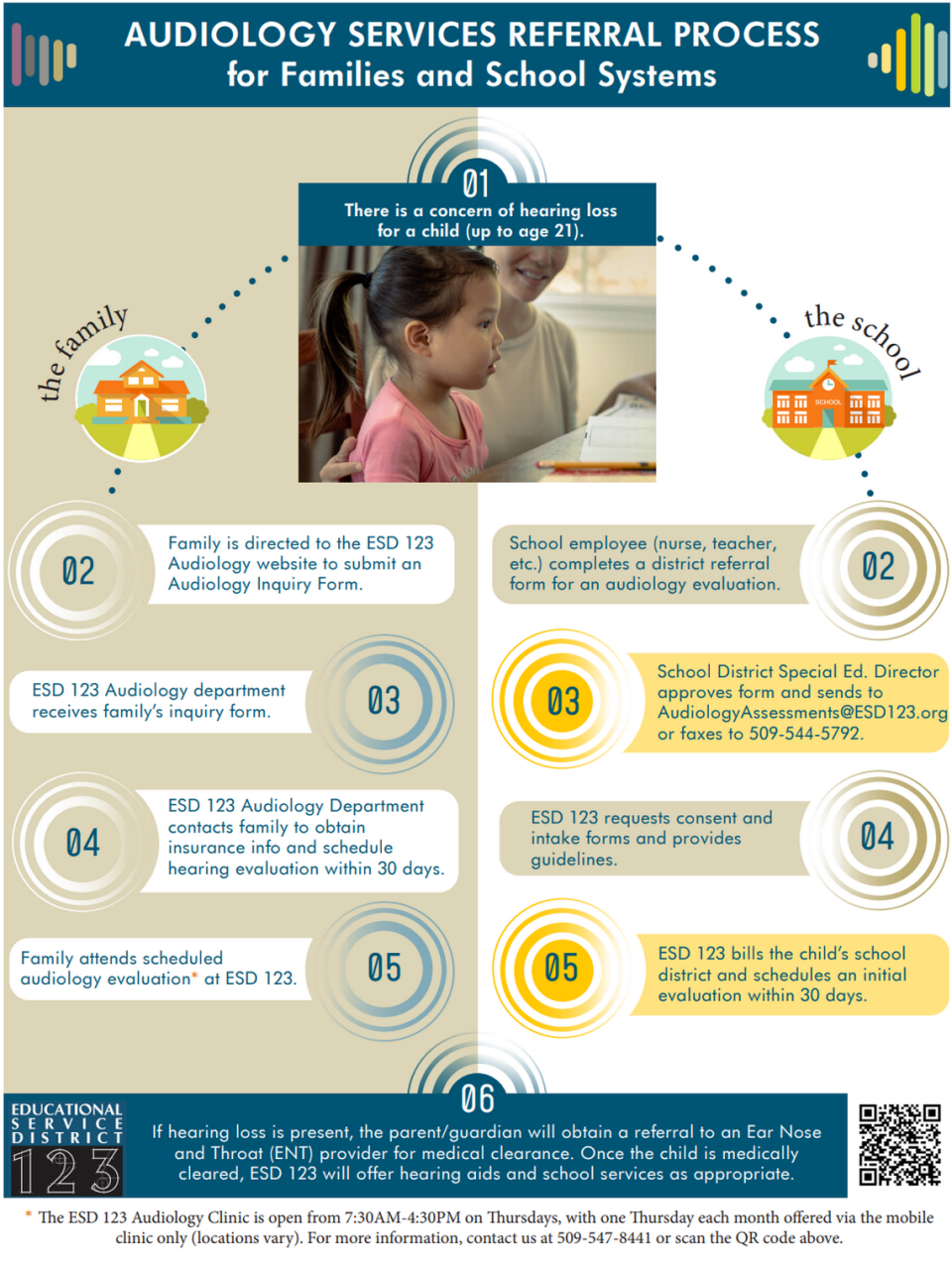Kids with hearing loss in Eastern WA often must travel for care. Tri-Cities lab is helping
A new mobile audiology lab has been in the Tri-Cities region for nearly a month and is already closing some of the gaps in help youth with hearing loss in Eastern Washington.
Lots of medical referrals are pouring in because the region was so underserved, said Betsy Schluge, director of audiology with Educational Service District 123.
The mobile audiology lab is at the ESD 123 main campus at 3924 Court St. in Pasco on most Thursdays. One Thursday a month it will travel to some of the 23 more rural Eastern Washington school districts included in the program.
The lab is available by request Monday through Wednesday for school and community site visits. People can also contact the audiology department for information on scheduled visits at 509-410-3432.

Fulfilling a need
When a child has hearing problems it can harm a child’s language, communication and social emotional skills, according to the Centers for Disease Control and Prevention.
Nearly 15% of youth ages 6 to 19 in U.S. are affected by hearing loss, according to the CDC.
In Washington state, nearly 5% to 6% of the entire population in over a dozen counties suffer from hearing loss, according to the most recently available data from the Department of Social and Health Services.
Most of those counties are in Eastern Washington.
In Western Washington, the percentage of people with hearing loss is far less at about 3 to 4.6%, but they have far more of the audiology resources.
The only county with less than 2% experiencing hearing loss is King County where there is much greater access to resources and audiologists.
Danette Driscoll, executive director of nonprofit HOPE Spokane (Hearing Oral Program of Excellence), said her organization has been trying to increase available resources across Eastern Washington.
She said the disparity is likely because the population is denser on the west side, making it easier for audiology offices to serve enough patients to make a living.
ZipRecruiter reflects this, showing a salary disparity of over $10,000 between pediatric audiologists in metropolitan western cities and rural eastern towns.
The Washington School for the Deaf and Hard of Hearing (WSD) has spent the last decade planning the mobile lab program and other solutions addressing the disparity, said Kalani Cox, director of audiology.
The idea originally stemmed from her own experience growing up in a low-income household with a single parent and a family member with a disability.
Throughout her career, Cox observed gaps in services for children with hearing loss in rural and low-income areas.

“Those internalized personal experiences combined with my professional experience provided me with a unique insight and understanding into the challenges and barriers that many of the children and families we serve face,” Cox said.
“It was through my outreach work that I began to see the disparity and gaps in our statewide systems and service models for deaf, hard of hearing and deaf-blind children. This prompted the idea for a mobile clinic,”she said.
There are dozens of pediatric audiologists in Western Washington and about five on the east side of the state, said Cox and Schluge. Many families drive to Spokane or Seattle to get their child the needed help.
One Tri-Cities mother, Ronica Bishop, did that with her son. He was just 5 months old when he was diagnosed with hearing loss in both ears — the first bilateral auditory neuropathy diagnosis at Kadlec Regional Medical Center in Richland.
Their family traveled to Spokane for testing and other care. At the time he was diagnosed, he was in the state foster system, which automatically approves testing and services relating to pediatric hearing loss.
Once Bishop adopted him, she noticed a change in care, more roadblocks and a harder time accessing necessary resources.
Barriers to care
After audiologists in Spokane reached out to HOPE, the nonprofit began offering occasional services and group gatherings in Tri-Cities.
Audiologists explained that kids need more than just the physical hearing aid or cochlear implant.
Children are supposed to hear and process 46 million words before kindergarten, according to HOPE Spokane’s Driscoll.
The language part of the brain grows the fastest between birth and age 3. When a child starts using a hearing device, the new sounds need to be explained and understood.
Without the proper resources, many children were not experiencing these necessities and falling behind.
Bishop refers to this as language deprivation — and she’s seen it in the Tri-Cities.
When a child isn’t properly diagnosed or given the necessary resources, they aren’t able to learn a sign or spoken language at a normal pace. That causes language deprivation, which can seriously stunt a child’s growth and language abilities.
But for families it can be hard to avoid that language deprivation. And the mobile lab aims to fix that.
There are multiple paths to the mobile lab because of this, families, educators and others can inquire about an appointment with the mobile lab. The state DOH also offers guides for families of children with hearing loss.

